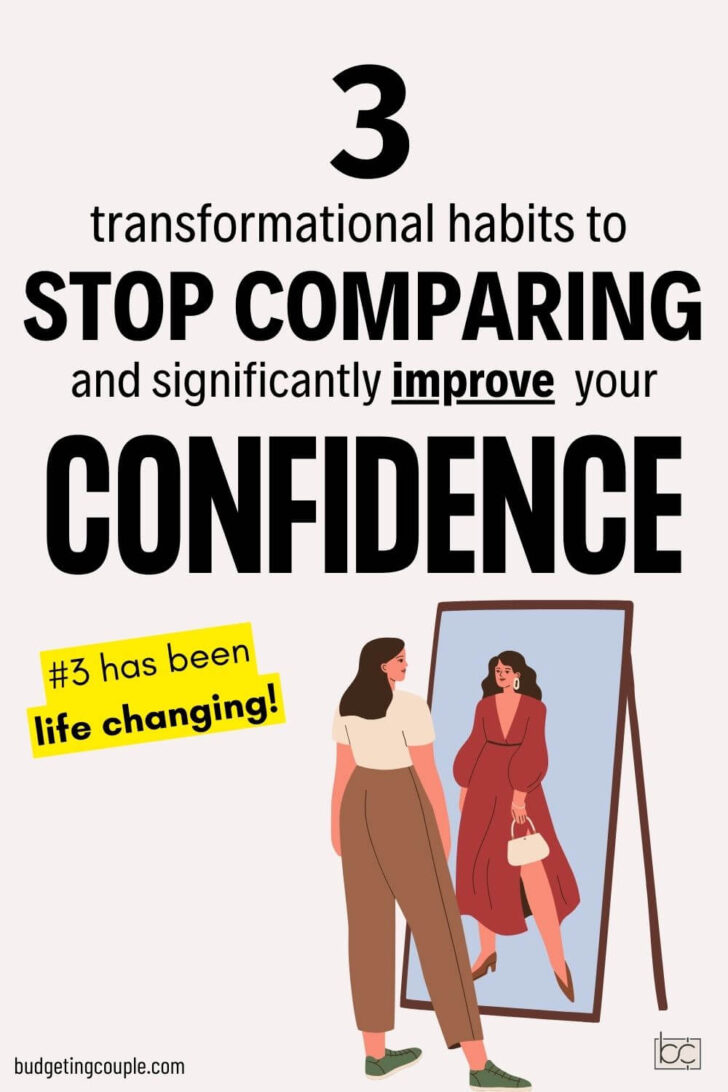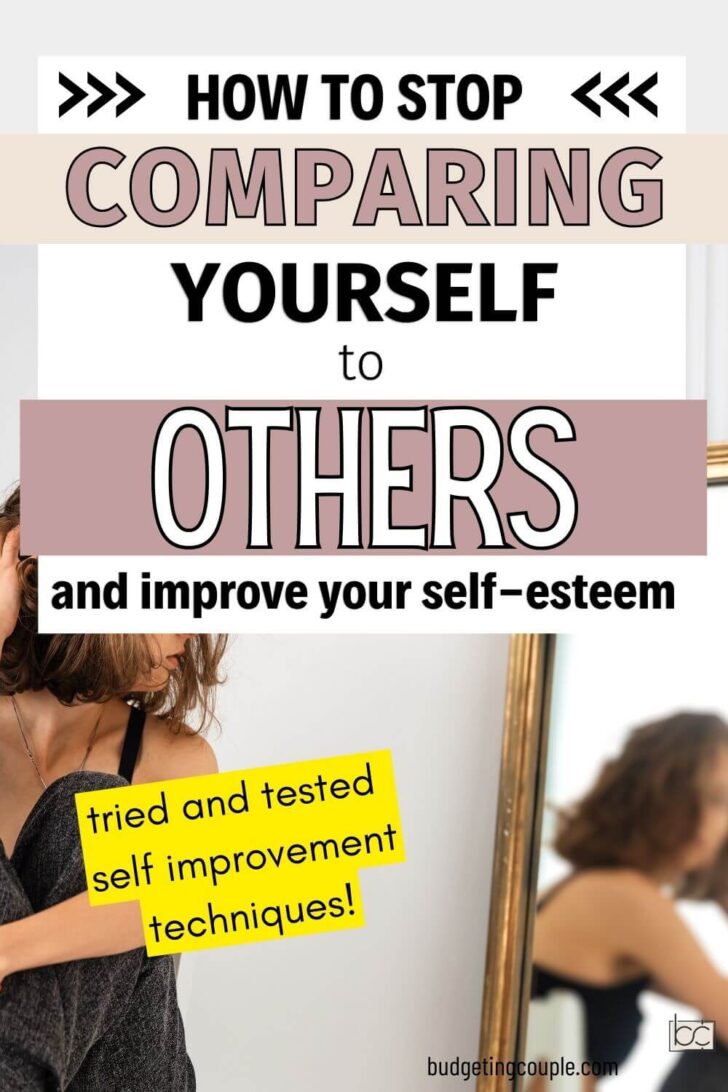How To Not Compare Yourself to Others
Comparison is a fundamental function of mind. It allows us to plan, think critically and solve problems. So it may be unreasonable to hope that the mind can altogether stop comparing us against others.
But that’s okay! We can appreciate our mind’s ability to compare when it is helpful, and work with our mind when it takes its abilities too far.
Let’s shine some light on harmful comparing thoughts and limit their ability to cause us pain.

1. Cut off the negative voice
Comparing yourself to another happens in an instant (hello familiar feelings of shame and unworthiness).
If we’re not careful, we can be swept away in a veritable spiral of pain and self-criticism. Self-criticism fuels emotional pain. Emotional pain fuels more self-criticism. And on and on it goes.
So how do we get out?
The good news is that we have agency over our thoughts. We can use our awareness to shut down that negative voice in its tracks.
The practice is simple:
- Tell the voice to stop
- Find refuge in the present moment
When you notice your mind is shaming you, tell that voice, “No more! Enough!” Say it out loud if you have to. Tell it to stop!
Then you want to direct your full attention to present moment sensation. Listen to the sounds around you. Feel yourself breathing. Try to feel the present emotional pain without fueling it with more critical self-talk?
When you put your energy into noticing present moment sensation, the voice loses its grip, and the emotional pain is free to pass.
Know that after as little as 10 seconds, you will have lost your focus and those critical thoughts will come creeping back. As soon as you notice that negative voice, tell it to stop, and bring your attention back to present moment sensations. Keep coming back again, and again, and again. Do not allow that voice to take up space in your mind.
Free Workshop – Join our free Simplify Money Workshop
The *only* way to save money is to spend less than you earn. That means you need to decrease your expenses or increase your income.
We want to help you do both.
Join our FREE Simplify Money Workshop to learn the fundamentals of growing wealth. Because when you can spend less than you earn, your money has no choice but to grow. You will build your savings and pay down debt.
What’s more? We’ve got a bunch of free money-hacks to share with you:
- Hacks to lower your monthly bills
- Hacks to spend less on debt
- Hacks to start investing
- Hacks to increase your income by $20/month (with no extra effort)
This workshop has everything you need to accomplish the cardinal rule of personal finance: keep your income over your expenses.
Join our free 5-day Simplify Money Workshop, and start growing your wealth today.
2. Practice meditation
Meditation is the most profound practice in working with comparative thoughts because meditation is the practice of letting go of thoughts!
When you sit down for meditation, the aim is to keep your attention on present moment sensation. The most obvious present moment sensation is the breath. Feel yourself breathing and your meditating.
But without fail, a thought will arise. You might replay that heated conversation, or worry about all the things you need to get done today, or get lost in a daydream.
When you notice you are in the midst of thinking, you will also notice that you have forgotten about present moment sensations. So you drop the thought, and return your attention to feeling yourself breathing.
The practice of meditation is the practice of letting go of thoughts. It is the practice of coming back to present moment sensation again, and again, and again.
Having a dedicated meditation practice will improve your ability to drop those comparing thoughts as soon as they arise.
3. Practice Metta
That critical voice that compares you to others can be decisively cutting and deeply hurtful. The practice of Metta (a traditional buddhist practice) is a means to counteract this harsh voice with a voice of compassion.
Self-compassion allows us to embrace and love ourselves as we are. Fill yourself with self-compassion, and that self-critical voice to become less valid and less able to cause you harm.
The practice is simple. Wish yourself well:
“May I be happy.”
“May I be healthy”
“May I be safe”
These are deep human desires. Their alternatives cause all of us great suffering.
During your meditation, keep repeating these phrases to yourself. Make each statement conscious and sincere. It may feel like nothing is happening, but you are in fact cultivating the seeds of self-compassion. Stay consistent. Fill yourself with self love and kindness. If you need more encouragement, we recommend Sharon Salzberg’s book, LovingKindess.
May you be happy, healthy, and safe.











